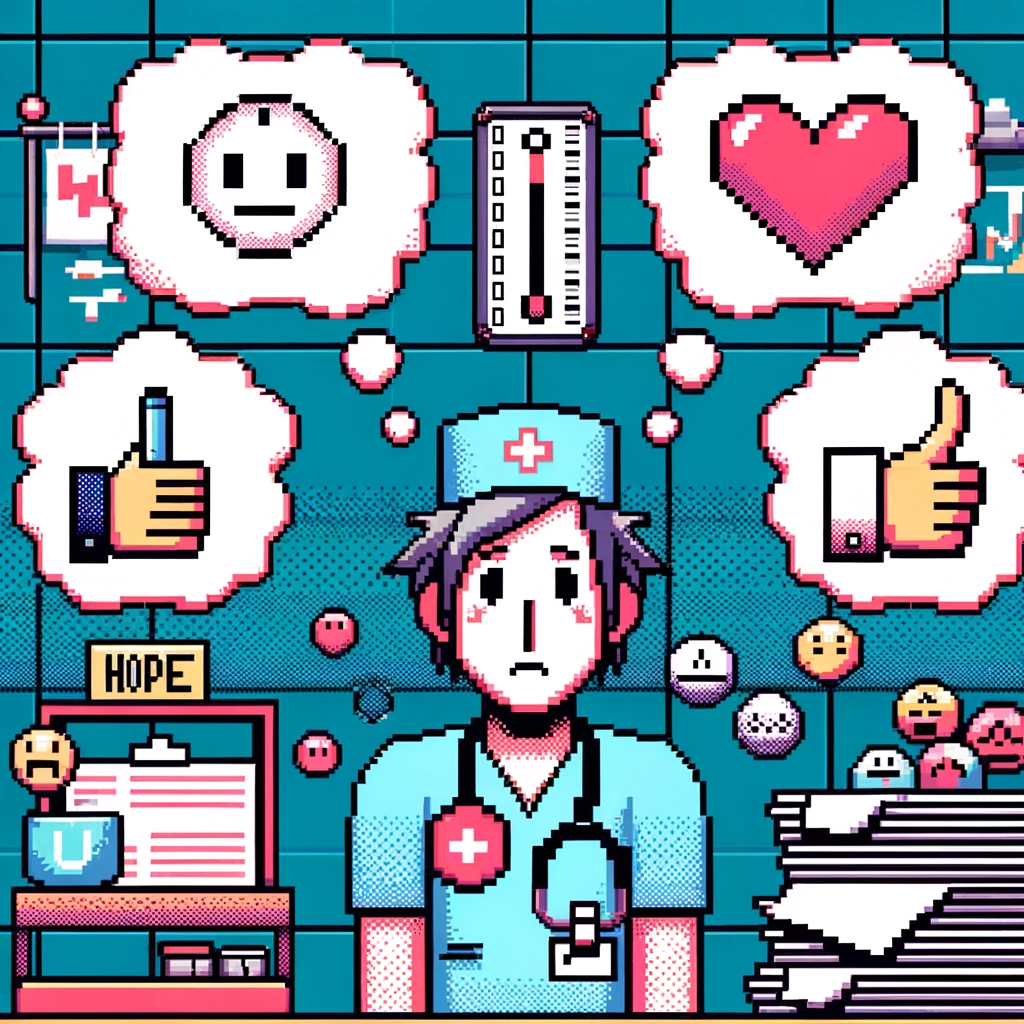
Balancing the Scale: Understanding Work Stress and Mental Well-being in Healthcare Workers
Work demands often take a toll on our mental and physical health. This is particularly true for health-care workers, who face intense pressure and stress in their line of duty. The study “General work stress and suicide cognitions in health-care workers: the mediating effect of hopelessness and job satisfaction,” published in Frontiers in Public Health, sheds light on this critical issue, exploring the relationship between work stress, hopelessness, job satisfaction, and suicide cognitions in health-care workers.
Understanding the Study
The research conducted a cross-sectional study involving 416 healthcare workers in Turkey. It aimed to understand how general work stress impacts suicide cognitions, with a focus on the mediating roles of hopelessness and job satisfaction. The study is grounded in the Hopelessness Theory and Effort-Reward Imbalance frameworks, providing a comprehensive view of the psychological factors at play.
Key Findings
The study reveals several important findings:
- General Work Stress and Suicide Cognitions: There’s a significant relationship between the stress experienced in the workplace and the emergence of suicidal thoughts among healthcare workers.
- Mediating Role of Hopelessness and Job Satisfaction: Both hopelessness and job satisfaction significantly mediate the relationship between work stress and suicide cognitions. Higher work stress leads to increased feelings of hopelessness and decreased job satisfaction, which, in turn, heightens the risk of suicide cognitions.
- Impact on Healthcare Delivery: These factors affect healthcare workers’ mental health and have implications for the quality of patient care they can provide.
Implications for Public Health Practice
The study’s findings have profound implications for public health practice:
- Preventive Measures: Hospitals and health-care institutions must develop strategies to reduce work-related stress and improve job satisfaction. This includes offering mental health support and creating a more supportive work environment.
- Training and Awareness: Healthcare workers should receive training to manage stress effectively and recognize signs of hopelessness or suicidal thoughts in themselves and their colleagues.
- Policy Development: Policymakers should consider these findings when formulating health-care policies, especially those aimed at worker welfare and mental health support.
Conclusion
The General work stress and suicide cognitions in health-care workers study is a wake-up call to address the mental health challenges faced by health-care workers. It highlights the need for systemic changes to ensure that those who care for us are also cared for. By addressing work stress, hopelessness, and job satisfaction, we can improve the mental well-being of healthcare workers and enhance the quality of care they provide to patients.
As we move forward, healthcare institutions and policymakers must take these findings seriously and work towards creating a healthier, more supportive work environment for healthcare professionals.
For more in-depth insights, I highly recommend reading the full article at Frontiers in Public Health.



